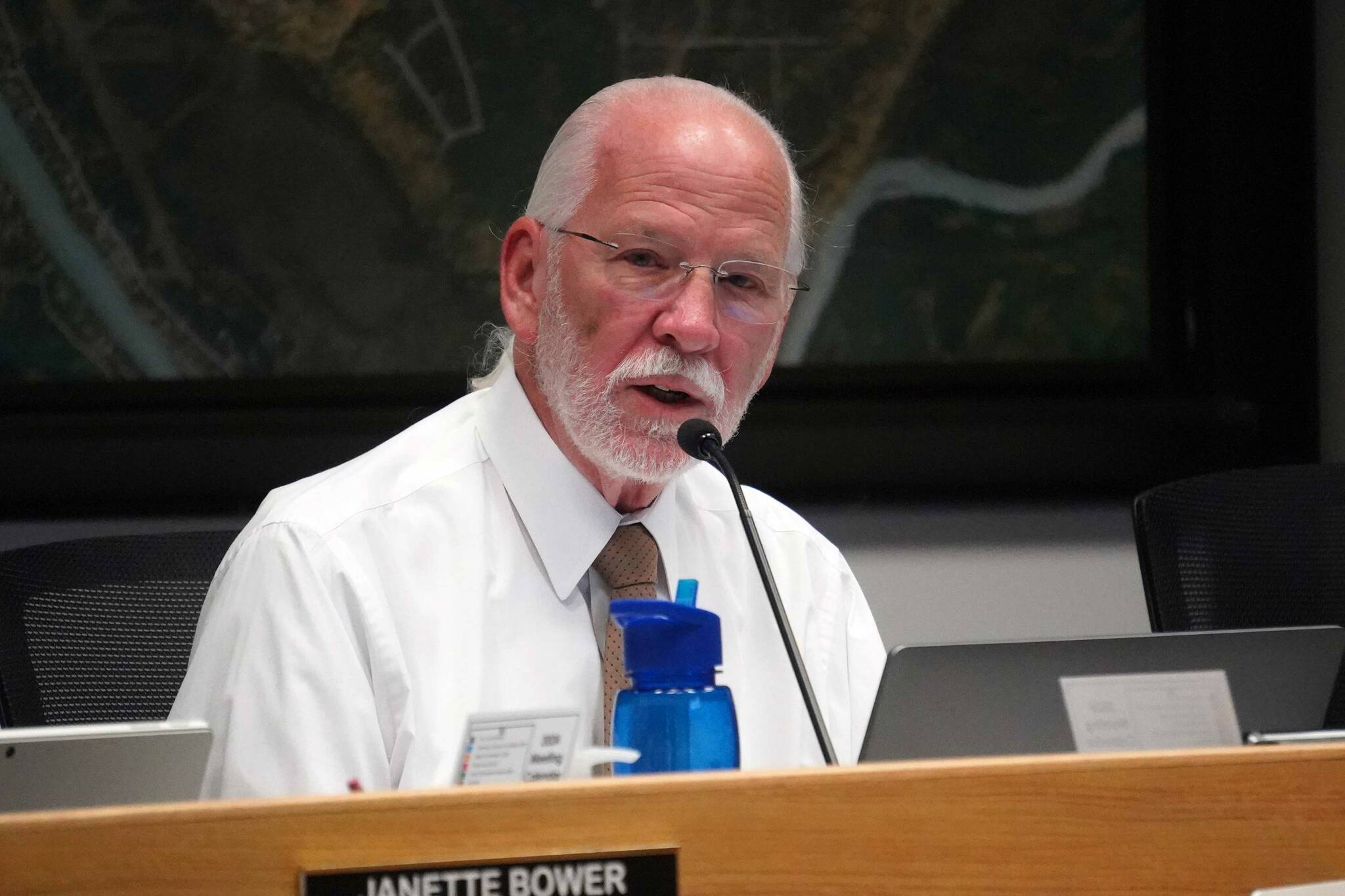Soldotna’s City Council on Wednesday voiced their opposition to an effort to list Gulf of Alaska chinook salmon as threatened or endangered under the Endangered Species Act, only a week after Kenai’s city council made the same move.
A letter to the National Marine Fisheries Service from Mayor Paul Whitney, authorized by the council on Aug. 28, says that the city opposes the possible listing of chinook salmon under the Endangered Species Act, as well as the National Marine Fisheries Service’s positive finding on the requesting petition.
The letter describes many of the same issues as the letter authorized by the City of Kenai. Whitney said during the meeting that its contents were “very similar.” Several passages are the same.
The council authorized the letter on a 5-1 vote, with member Dan Nelson opposed. He said that while it is important for the city to weigh in on issues, the council didn’t have enough time to understand the issue.
“For something that’s so critical to the economy, to other folks, to residents, I don’t know enough about this to say that this is a bad idea — nor a good idea,” he said. “I’m not a biologist.”
The council, Nelson said, only had “a few hours” and a single supporting document to consider the action.
The petition, per a release from the service, was submitted in January by the Washington-based Wild Fish Conservancy. According to the service, the petition called for listing of chinook salmon as either threatened or endangered, as well as the designation of critical habitat in need of protection. The service’s positive finding, based only on that petition, means that the service thinks that action may be necessary. It triggers a 90-day “in-depth review” to determine whether that listing is warranted.
The letter warns against “profound consequences” and potentially “unnecessary reductions or complete closures of fisheries” if gulf kings are listed as threatened or endangered.
The move comes, the letter says, when “the current evidence does not indicate an imminent risk for Gulf of Alaska Chinook salmon.” Like Kenai, Soldotna cites the service’s own acknowledgment that the petition included “factual errors” and “unsupported assertions.”
The service, in their listing of the finding in the Federal Register, says that the petition failed to present data indicating improvements in some salmon populations and doesn’t provide examples to support described threats of logging, mining, overharvest and competition from hatchery salmon.
Like Kenai, Soldotna’s letter says that management by the State Department of Fish and Game is designed to protect long-term productivity of salmon stocks, even at times of low abundance.
“Failure to meet escapement goals signals a need for corrective management actions but does not indicate an imminent risk of extinction,” the letter reads.
The department is taking steps to respond to declining chinook productivity, the letter says. The department and the State Board of Fisheries have reduced chinook harvest, named stocks — like Kenai River late-run king salmon — as “stocks of concern” and implemented action plans.
Those responses have resulted, they write, in closed fisheries, reduced effort and other impacts even for fisheries that don’t target kings.
Those changes are “indicators of Alaska’s strong and responsive management approach,” not evidence of stocks in danger of going extinct.
A full copy of the letter, and a recording of the meeting, can be found at soldotna.org.
Reach reporter Jake Dye at jacob.dye@peninsulaclarion.com.

